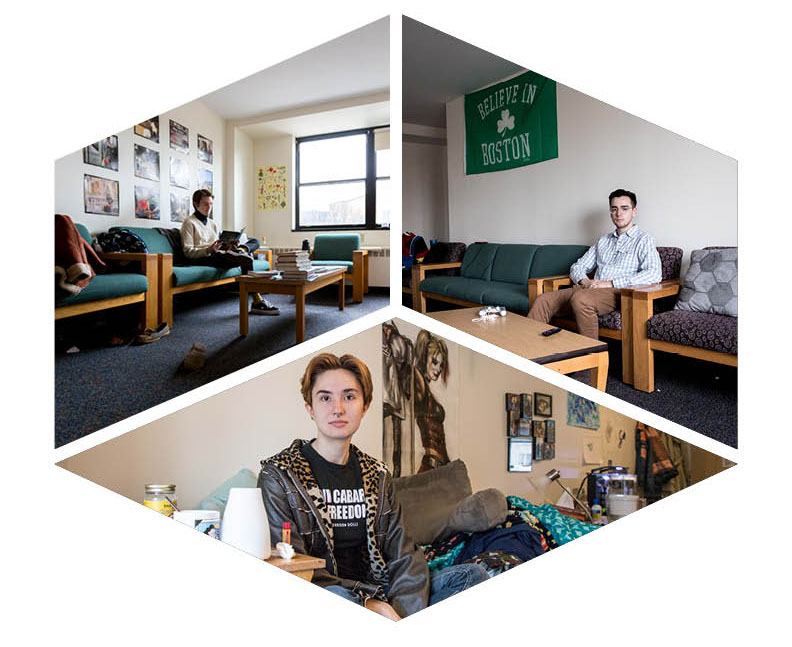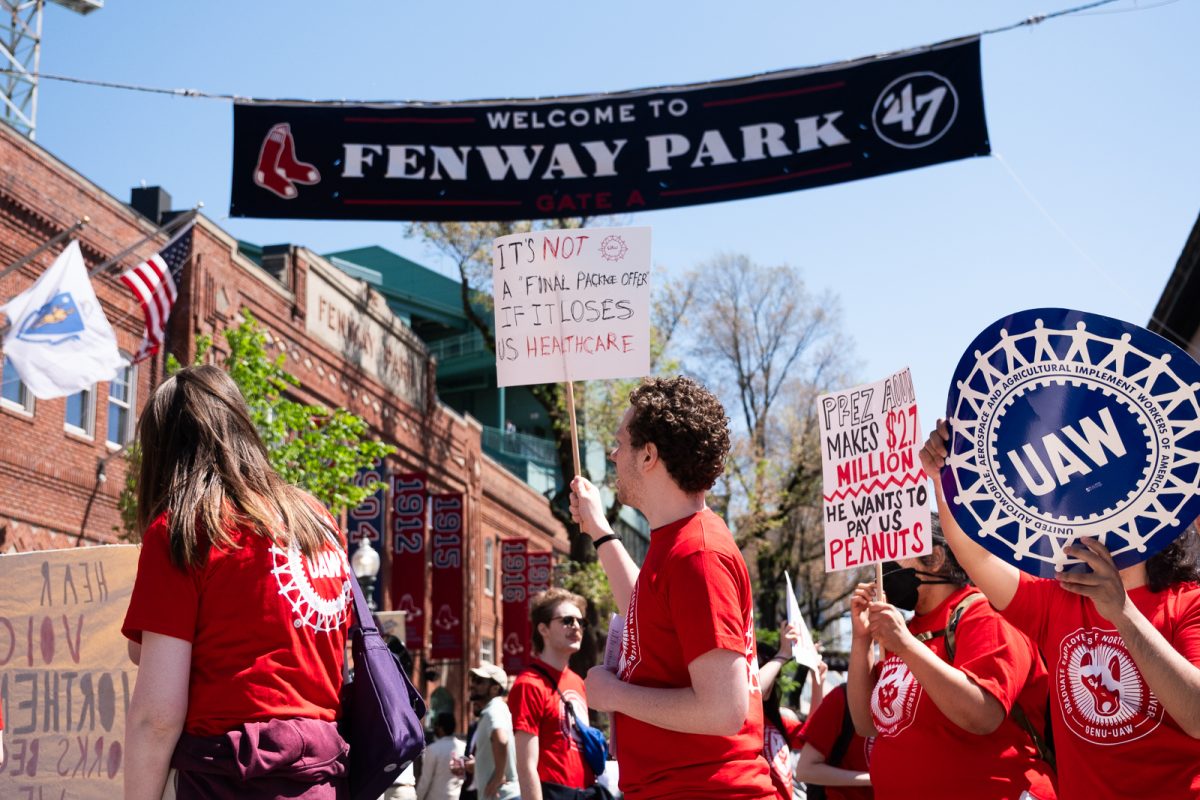By Morgan Lloyd, campus editor
When Kate Parks applied for housing earlier this month, they found there was no all-gender housing available for their three-person roommate group. The online housing system misgendered Parks, who identifies as non-binary, telling them the options for female students were taken.
Parks’ roommate group was forced to split up, leaving Parks without housing.
“I lost my housing. I have not been able to find a place to live,” said Parks, a second-year theatre major. “I’m currently fighting the university on being able to live with some of my friends because they’re insisting that I can’t. It’s just a mess.”
Many students have problems with the limitations of gender-restricted housing. Now, a group of students has submitted a referendum question to the Student Government Association, or SGA, ballot, asking students to support removing gender restrictions on apartment-style housing. Students can vote on the referendum on the myNortheastern portal until 11:59 p.m. Thursday.
“If it’s a change that’s going to benefit even a single student and not hurt anyone else, why would [University Housing] not do it?” asked Jake Grondin, a third-year biology major and the lead sponsor of the referendum.
A lack of options
Northeastern has guaranteed all undergraduate students housing since fall 2014; however, many students have found that all-gender housing options are inaccessible or unavailable.
“I figure somebody must have gotten gender-neutral housing, but I don’t know who,” Parks said. “That’s how I felt last year. In theory, someone got housing, but everyone I’m talking to is going through this hell process.”
In a Tuesday email to The News, John O’Neill, Northeastern’s senior media relations specialist, said about 2 percent of students choose all-gender housing.
“The university has more all-gender units available than we are able to fill,” O’Neill wrote.
One of the biggest problems students had with all-gender housing this year was the lack of room choices, said referendum sponsor Dylan Balcom, who is currently running for SGA executive vice president.
“A huge proportion of it was leased properties. More typically than not, leased properties are economy and standard,” said Balcom. “It should be reflective of the other [housing] pools.”
O’Neill said the university has increased their number of economy and standard units across the board as a result of requests from students in both all-gender and single gender housing.
Colin McLean, a second-year computer science major who identifies as non-binary, faced this issue as well. When it came time for McLean’s group to find housing, the only options available to them were in leased properties that would force McLean’s friends to sleep in bunk beds.
“I felt bad for being like, ‘Oh, can you live in gender-neutral housing?’ because they would get bunk beds,” McLean said.
McLean will now have to live off campus with another group of friends in order to avoid living in gender-restricted housing.
“I’m being forced to live with cis males, because that’s what I’m under, but I’m not a man. So why would I be forced to live with men?” McLean said. “They completely neglect and throw away everyone who is gender nonconforming.”
McLean said they are not the only one choosing off-campus housing rather than having to deal with Northeastern’s all-gender housing system.
“A lot of my friends moved off campus because they were done with it,” McLean said.
When Parks began fighting to live in their friends’ apartment, they said the tone of the university’s response was that Parks would be okay not living with friends. However, Parks said the university doesn’t realize how important it is for LGBTQIA+ students to know who they will be living with.
“If you are an out trans person, living with someone who is not okay with that literally puts you in danger,” Parks said.
Campaigning for change
The current referendum asks if students would support taking away the gender restrictions on apartment-style housing, allowing students to live wherever and with whomever they choose. Grondin explained that as his group envisions the process, students would preference gender for random assignments, rather than the current system of students choosing all-gender housing.
“I don’t really get why they have to designate specific apartments to be gender-neutral,” Parks said. “I can see for dorming it might make sense, like if you’re signing up for a space with someone you don’t know, but if you’re setting up a space like, ‘I’m going to live with these people,’ why does it matter where you live?”
The current campaign against housing gender restrictions has been ongoing since April 2017, Balcom said. SGA and the Resident Student Association proposed the idea to Northeastern Housing and Residential Life last year.
If the referendum passes, Grondin said his group will approach Northeastern Housing and Residential Life with more data to work on the issue.
“We’re just hoping to get more numbers with this referendum that we can bring back to the administration and say, ‘This will affect X amount of students,’ ‘The student body in general thinks that we should do it,’ that sort of thing,” Grondin said.
Balcom said while this is an issue that has particular significance within the LGBTQIA+ community, it affects the student body as a whole.
“Obviously this is hurting the LGBTQIA+ community who is supposed to be benefiting from all-gender, but it also affects the students who don’t need to benefit from it,” Balcom said. “Males and females could still live together in a mixed apartment just as if they were off campus. It just makes it all more fair and transparent.”
Parks said the university does not understand the importance of the issue at hand when dealing with gender-nonconforming students.
“I feel like they only tried halfway on gender-neutral housing,” Parks said. “They felt like they should have it, so they just kind of said it existed, but they didn’t think about the implications or do any of the stuff you’re supposed to do to make it an actually accessible thing.”









